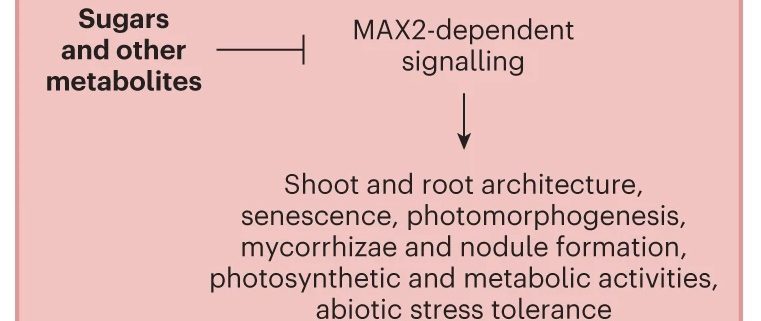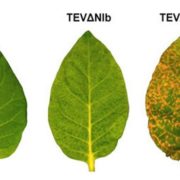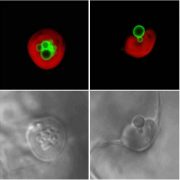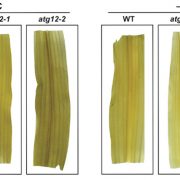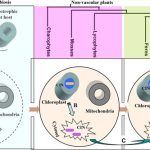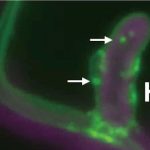Review: Strigolactones integrate metabolic and nutritional signals
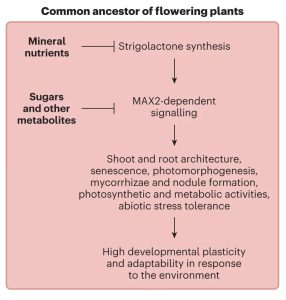 Strigolactones are a class of hormones first identified in the 1960s as components of root exudates that promote germination of parasitic Striga seeds, and later as a promoter of associations with arbuscular mycorrhizal fungi. Strigolactones also have endogenous roles within plants, for example as regulators of shoot branching. More recently, they have been shown to be involved in metabolic and nutrient sensing and signaling. These latter roles are summarized in a new review by Barbier et al. Several studies have demonstrated that the synthesis of strigolactones is stimulated by nutrient deficiency. Interestingly, changes in sugar metabolites affect strigolactone signaling but not apparently its synthesis. The molecular interactions through which these effects are mediated are also discussed. Finally, the authors discuss the many ways through which strigolactones help plants adapt to unfavorable environmental conditions. (Summary by Mary Williams @PlantTeaching) Nature Plants 10.1038/s41477-023-01453-6
Strigolactones are a class of hormones first identified in the 1960s as components of root exudates that promote germination of parasitic Striga seeds, and later as a promoter of associations with arbuscular mycorrhizal fungi. Strigolactones also have endogenous roles within plants, for example as regulators of shoot branching. More recently, they have been shown to be involved in metabolic and nutrient sensing and signaling. These latter roles are summarized in a new review by Barbier et al. Several studies have demonstrated that the synthesis of strigolactones is stimulated by nutrient deficiency. Interestingly, changes in sugar metabolites affect strigolactone signaling but not apparently its synthesis. The molecular interactions through which these effects are mediated are also discussed. Finally, the authors discuss the many ways through which strigolactones help plants adapt to unfavorable environmental conditions. (Summary by Mary Williams @PlantTeaching) Nature Plants 10.1038/s41477-023-01453-6


